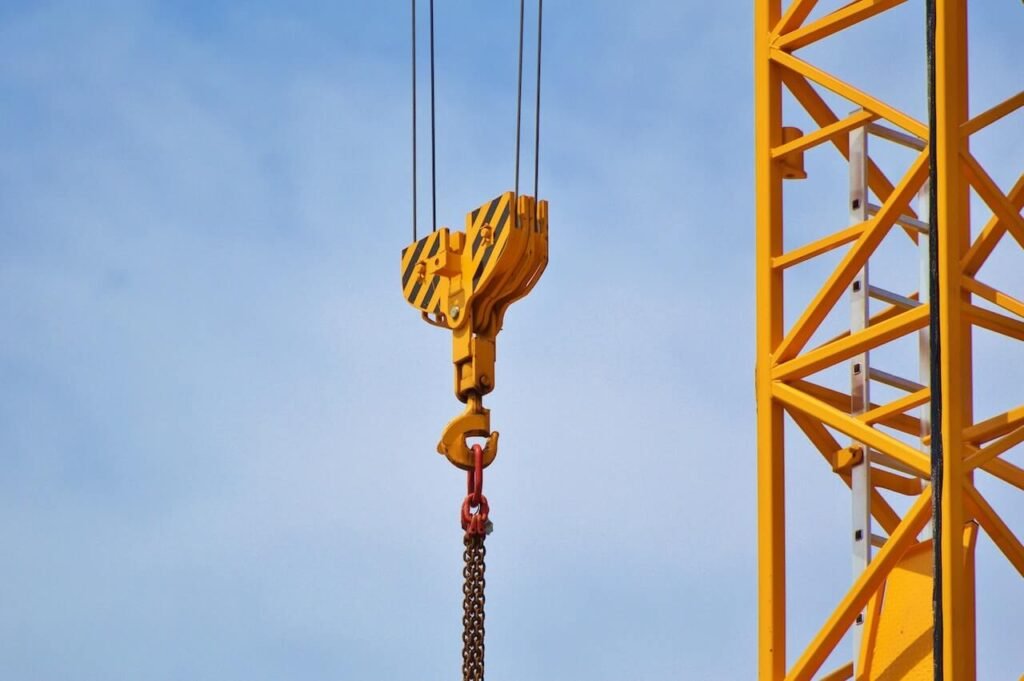
Industrial weighing solutions encompass a wide range of tools designed to meet the unique needs of different sectors. Two such tools that stand out due to their significant utility and versatility are crane scales and platform scales. This article aims to offer a deep dive into both these industrial weighing instruments, providing insights into their use cases, advantages, and the industries that benefit the most from each type.
Understanding the Utility and Advantages of Crane Scales in Industrial Weighing
Crane scales are a powerful component of any industry’s load management system. Characterised by their robust build and designed to weigh heavy loads in a vertical format, crane scales are a typical feature in industries such as shipping, construction, and manufacturing.
The key benefits of using crane scales are manifold. Their mobility and space-saving design make them a preferable choice for businesses that deal with hefty goods but have limited space. They can handle extreme weight loads and are designed for durability and longevity. Furthermore, crane scales play a pivotal role in maintaining safety and efficiency on the site, which can have a direct impact on a company’s bottom line.
However, using crane scales also calls for a keen understanding of the relevant compliance standards. These standards ensure that the scales deliver accurate readings, thereby minimising the risk of operational hiccups, potential fines, or safety hazards.
Delving into the Versatility and Benefits of Platform Scales in B2B Weighing Equipment
Platform scales, on the other hand, are designed for versatility. They come in various sizes and capacities and are easy to use, making them suitable for numerous applications across different sectors such as retail, healthcare, warehousing, and many others.
Among the key advantages of platform scales are their superior accuracy and ease of integration with other systems. They offer excellent stability and can handle a wide variety of goods. Their adaptability extends to their environment as well – platform scales can be used in both indoor and outdoor settings.
Just like crane scales, platform scales also have their set of compliance standards to adhere to. Regular scale calibration is a must to maintain accuracy and avoid potential legal consequences. Further, data from these scales often integrate into larger systems, making data security a vital compliance consideration.
Comparisons between Crane Scales and Platform Scales: Which is Right for Your Business?
Choosing between crane scales and platform scales depends on several factors. Crane scales are ideal for businesses that require heavy lifting and have space constraints. They offer a great deal of flexibility, making them a perfect choice for industries that deal with oversized or bulky items.
Platform scales, meanwhile, are the go-to option for businesses that prioritise accuracy over weight capacity. They are versatile, easy to use, and can be used in a myriad of applications.
Regardless of the type of scale you choose, understanding the compliance requirements, ensuring regular scale calibration, and choosing a reputable scale provider is critical for successful operation.
| Features | Crane Scales | Platform Scales |
|---|---|---|
| Use Cases | Ideal for industries like retail, healthcare, and warehousing that require weighing of items of varying sizes. | Ideal for industries like retail, healthcare, warehousing that require weighing of items of varying sizes. |
| Weight Capacity | Able to handle extreme weight loads, often into the thousands of kilograms. | Can handle a wide range of weights but generally not as much as crane scales. |
| Space Efficiency | Compact and can be used in confined spaces due to hanging design. | Requires more floor space but available in varying sizes to suit different spaces. |
| Mobility | Highly mobile due to compact size and can be easily moved to different locations. | Generally fixed in one place due to larger size and weight. |
| Ease of Use | Requires specific training for safe and efficient use, particularly in lifting and lowering heavy items. | Simple design makes it easy to use with little training. Usually come with LCD screens for easy reading. |
| Compliance & Safety | Must adhere to stringent safety standards due to heavy loads and high heights. Overload alarms are common features. | Must comply with industry-specific safety standards. Regular calibration is needed to ensure accuracy. |
| Versatility | Excellent for businesses dealing with heavy, oversized items. Often used outdoors. | Highly versatile across sectors and for goods of various sizes. Can be used both indoors and outdoors. |
| Durability | Highly durable and designed to withstand harsh conditions, including weather and heavy use. | Durable but might require protection from extreme conditions, especially the digital components. |
| Accuracy | Highly accurate but accuracy can slightly decrease with extremely heavy weights. | Known for superior accuracy across its entire weight range. |
| Integration with Systems | Some modern crane scales can be integrated with inventory systems, but it’s less common. | Commonly integrated with other systems like billing or inventory management due to the nature of industries they are used in. |
| Cost and Maintenance | Generally more expensive due to higher weight capacities and specialized design. Maintenance involves regular calibration and safety checks. | Often less expensive. Regular maintenance includes calibration and cleaning. |
